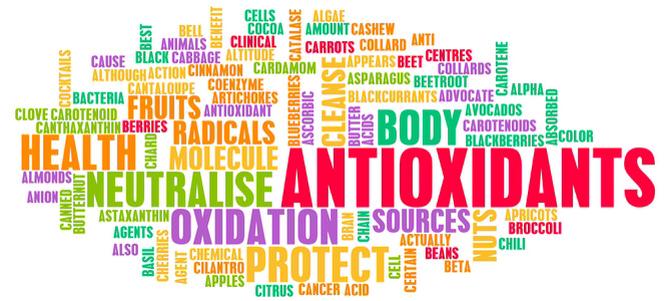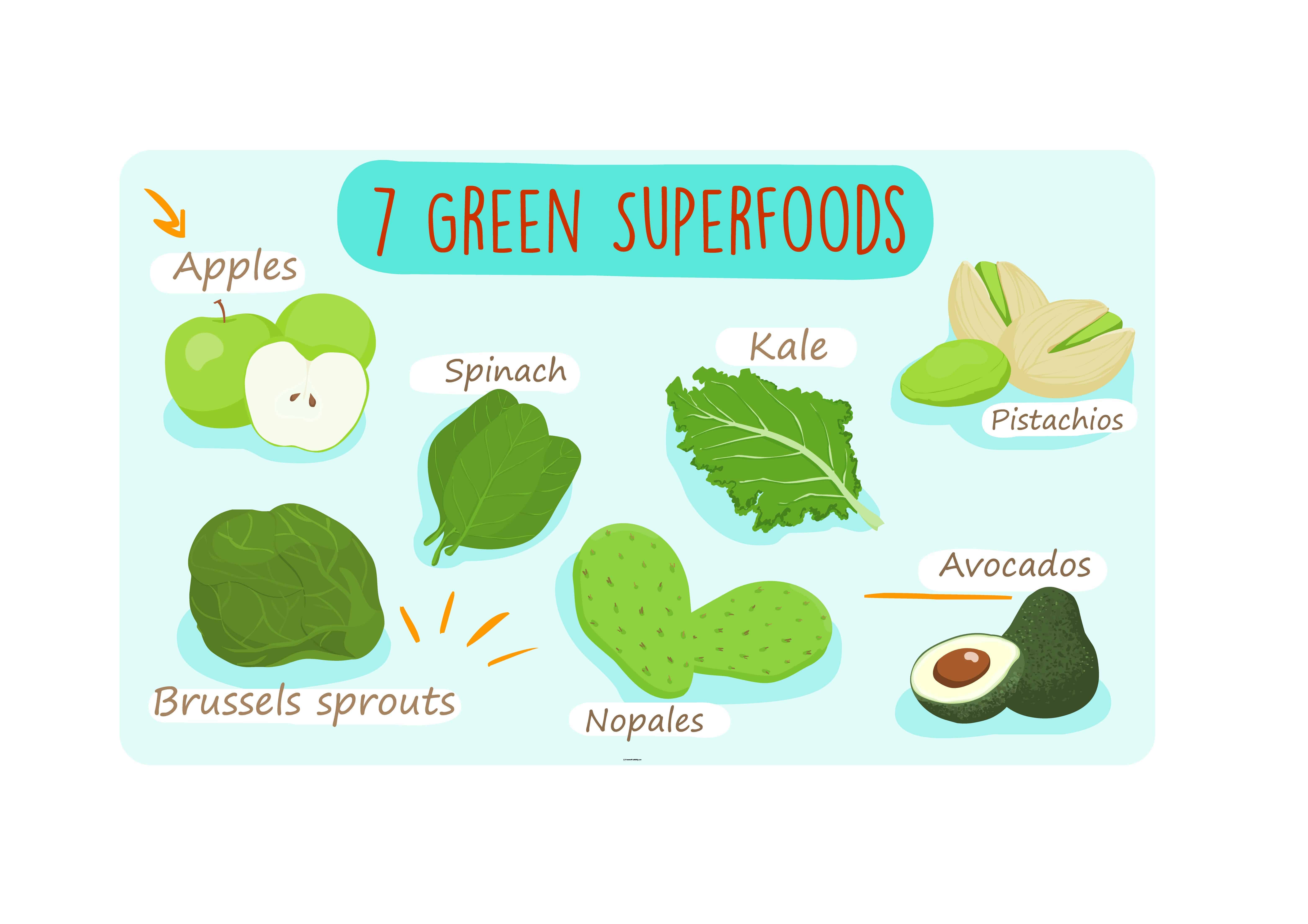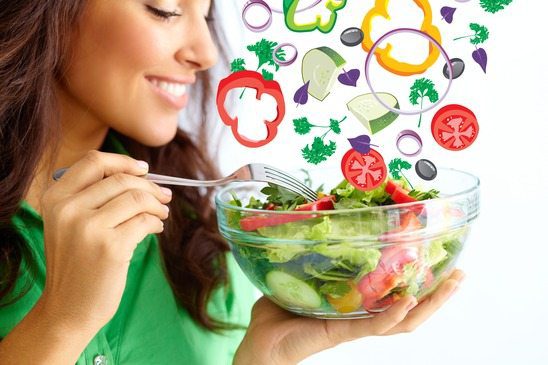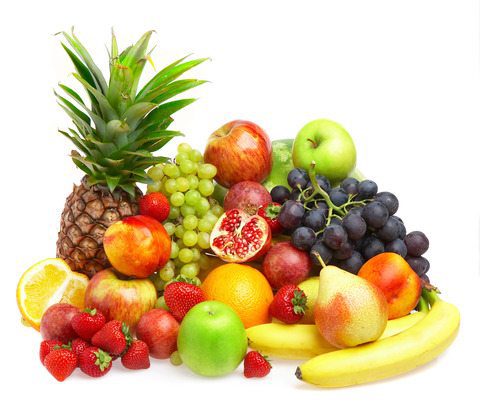We all deserve to feel truly happy every single day. The truth is that some of us have difficulty sustaining a good mood throughout the day. Chronic unhappy days become bouts of depression, and some people who need hope turn to medications. What if you could rely on food to boost your mood daily?
Nature itself is the best medicine. – Hippocrates
For centuries we have known that food affects our mood and mental health. Imagine this knowledge being applied and the food you eat being your daily medication to sustain a good mood, increased energy, and vibrant health. Eating clean not only helps you gain more energy, release toxins, and release weight, it also allows for mental well-being. A study found that vitamin deficiency causes a decline in mental health which leads to stress, anxiety, depression, addictions, and other psychological disorders. If mental illness runs in your family, it is even more essential to eat healthy for your own well-being and to existing and future DNA.
Tweaks and additions to your diet can make a big difference. Eat whole foods as often as you can. Reducing processed and refined carbohydrates will also improve your mood because you’ll experience more stable blood sugar levels. You’ll be on the road to health and bliss once you understand what vitamins are essential for a good mood, which types of food have these vitamins and then eat these foods consistently. Below you’ll find essential vitamins and foods that boost your mood.
How to Use Food to Boost your Mood Vitamin Reference
Vitamin D
Researchers discovered that Vitamin D plays a KEY role in mental health and depression because it increases serotonin, one of the neurotransmitters responsible for mood. So, skip the Vitamin D pills and get out in the sunshine as often as possible! Most people will immediately go to a supplement, but studies show that real UV Light is the only way the body can produce Vitamin D that it recognizes.
 Our favorite health coach and expert, Tyler Tolman, suggests getting in the sun at least 15 minutes a day and don’t use sunscreen. As an alternative, use organic coconut oil for maximum Vitamin D absorbancy. If you’re worried about getting skin cancer, throw out that negative belief. Tyler Tolman says, “A bad diet, sunscreen, and other chemicals on the skin cause skin cancer – not UV Light. UV Light [the sun and tanning beds] simply bring cancer out through the skin.”
Our favorite health coach and expert, Tyler Tolman, suggests getting in the sun at least 15 minutes a day and don’t use sunscreen. As an alternative, use organic coconut oil for maximum Vitamin D absorbancy. If you’re worried about getting skin cancer, throw out that negative belief. Tyler Tolman says, “A bad diet, sunscreen, and other chemicals on the skin cause skin cancer – not UV Light. UV Light [the sun and tanning beds] simply bring cancer out through the skin.”
If you’re living in a climate that isn’t always sunny or has harsh winters, Tyler suggests going to the tanning bed. Yep, that’s right. “I recommend any solarium with newer bulbs and a stand-up room so you don’t lay down in chemicals,” says Tyler. He continues, “If it’s a 15-minute session go for 10 and you will feel and look great from doing this 2-3x per week.” Tyler lives in Bali so he doesn’t have to worry about going to a tanning bed. But he said if he were in a city for more than a week with low sunlight he would definitely be looking for a tanning bed.
 Antioxidants
Antioxidants
A published study by the Journal of Nutritional and Environmental Medicine in 1998 found that Antioxidants can help perk up the mood of people affected by anxiety and stress. The 5 foods with the highest levels of antioxidants are:
- Small Red Bean (dried)
- Wild blueberry
- Red kidney bean (dried)
- Pinto bean
- Blueberry (cultivated)
This helpful article shows 20 common foods with the most antioxidants.
“Health requires healthy food.” – Roger Williams
Protein
Your brain’s chemical activation is dependent on the foods you eat.
Believe it or not, protein plays a significant role in keeping your mood and energy level, in check. Proper protein levels sustain your energy, keep your mood up, and keep you strong. Next to water, protein makes up most of your body weight. Protein is excellent for your brain as well. Your brain’s chemical activation is dependent on the foods you eat. Your brain cells neurotransmitters are made of amino acids which are the building blocks of protein, so it’s a ‘no-brainer’. And when you eat protein, it raises the levels of another amino acid called tyrosine that help create the mood-boosting chemicals dopamine and norepinephrine.
B Vitamins
Folate and vitamin B12 seem also to be critical mood-boosting vitamins. Studies have shown that low blood levels of these vitamins are sometimes linked to depression. Some scientists believe that the body uses these vitamins to create serotonin, which as we mentioned, is one of the key neurotransmitters that help boost your mood.
Add rich dark leafy green veggies and beans to get more folic acid. Healthy sources for Vitamin B12 include nutritional yeast and plant-based fortified foods. If you discover you are low in B12, you can get B12 Shots from the doctor or use high-absorbency B12 Patches recommended by Matt Monarch, the founder of Raw Food World. While B12 is also present in meats and cheeses, it can be a very toxic and dangerous way to receive this vitamin.
Selenium
A study 1991 showed that with proper amounts of selenium, there was an increase in mood. The study also showed that if there was a selenium deficiency, the brain is the last place that selenium levels drop, suggesting that the brain considers it very important. A great source of selenium is Brazil nuts. These nuts have very high amounts of selenium (68–91 mcg per nut)
Omega 3’s
 More studies are emerging about the importance of Omega 3 Fatty Acids and their prevention of depression. Omega 3’s can boost mood and rebuild critical brain cells in performing cognitive function. In fact, a recent study found that consuming healthy Omega 3 fatty acids dramatically boost your mood and reduces negative, harmful thoughts. Some of the worlds healthiest plant foods in Omega 3’s are #1 ground flaxseeds, then walnuts, organic soybeans, brussels sprouts, cauliflower and winter squash.
More studies are emerging about the importance of Omega 3 Fatty Acids and their prevention of depression. Omega 3’s can boost mood and rebuild critical brain cells in performing cognitive function. In fact, a recent study found that consuming healthy Omega 3 fatty acids dramatically boost your mood and reduces negative, harmful thoughts. Some of the worlds healthiest plant foods in Omega 3’s are #1 ground flaxseeds, then walnuts, organic soybeans, brussels sprouts, cauliflower and winter squash.
The best doctor gives the least medicine. – Benjamin Franklin
A unscientific study at Appleton Central High School in Appleton, Wis., observed that students behaved better when they consumed healthy lunches of vegetables, fruits, and whole grains. Dozens of studies show that plants are the most nutrient-dense foods on earth. The only problem is that getting people to change their dietary patterns is tough. Change is on the rise, but Kaplan said that the solution might be the supplementation of nutrients because it is integral that people receive less pharmaceutical intervention for mental disorders and more broad-spectrum supplementation.
If you choose to supplement, it’s essential to do so with superior-quality vitamins or a shake supplement containing multiple nutrients and superfoods.
As always, eating specific foods with these vitamins needs to be habitual. Eating healthier for a few days or once in a while will not bring the result you’re seeking. I’ve found that making small changes each week and keeping up with each habit will bring lasting change. We are creatures of habit and feel comfortable doing what we are used to.
Final Thoughts on Eating Good Food to Boost Your Mood
On a personal note, at one time I was very depressed and I learned to use food to boost my mood. So, I wrote this article from the knowledge I have gathered and experience. For most of my life, I had tried everything to release weight and be healthier and happier. At one point, I even tried supplements and medication. When I eliminated processed foods and increased my vitamin intake through plant foods and I experienced my life transformed. I want this for YOU too!
Please, if you have any questions, feel free to comment. I’m here and happy to help! You can also follow me on social media.




















